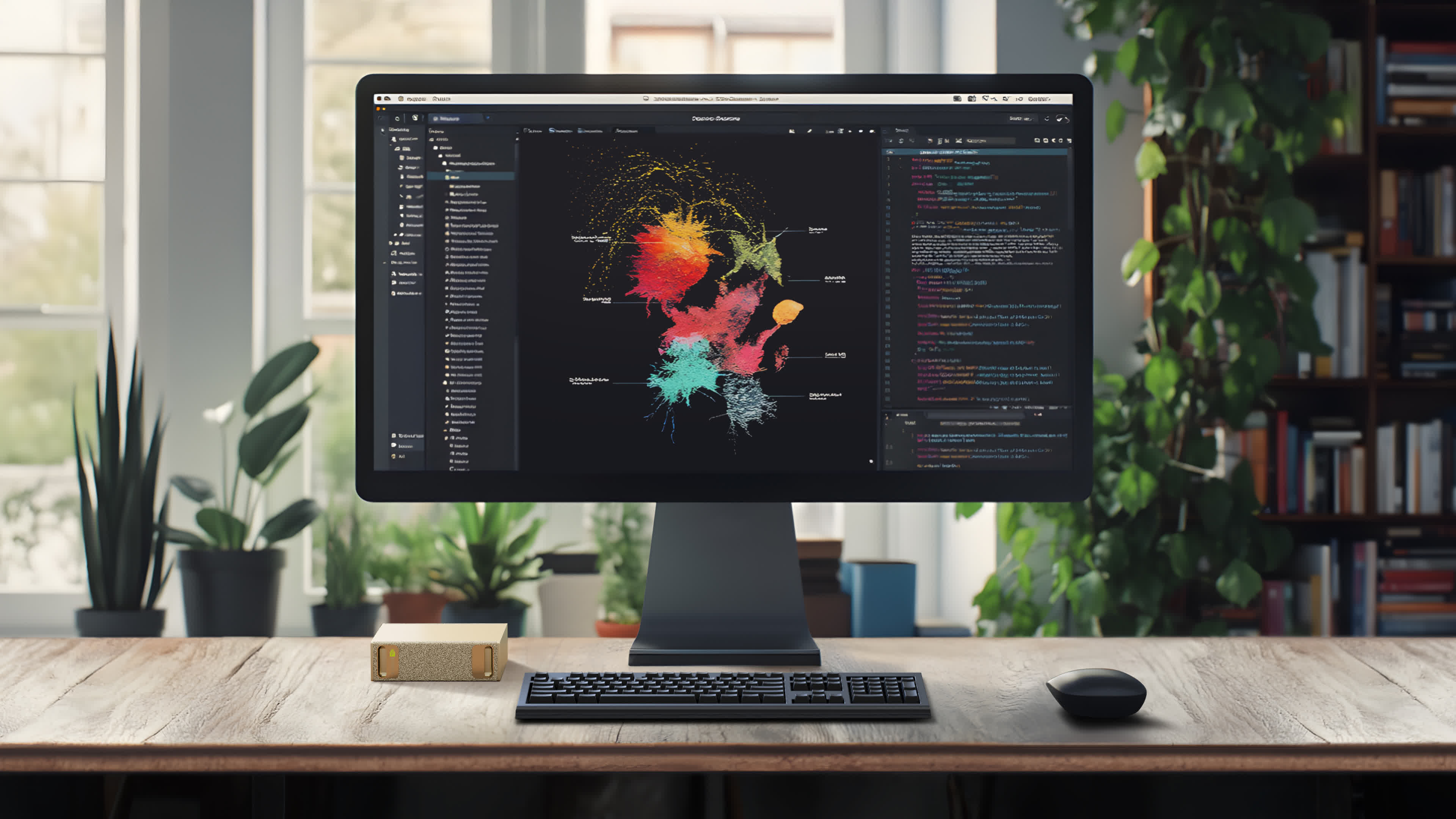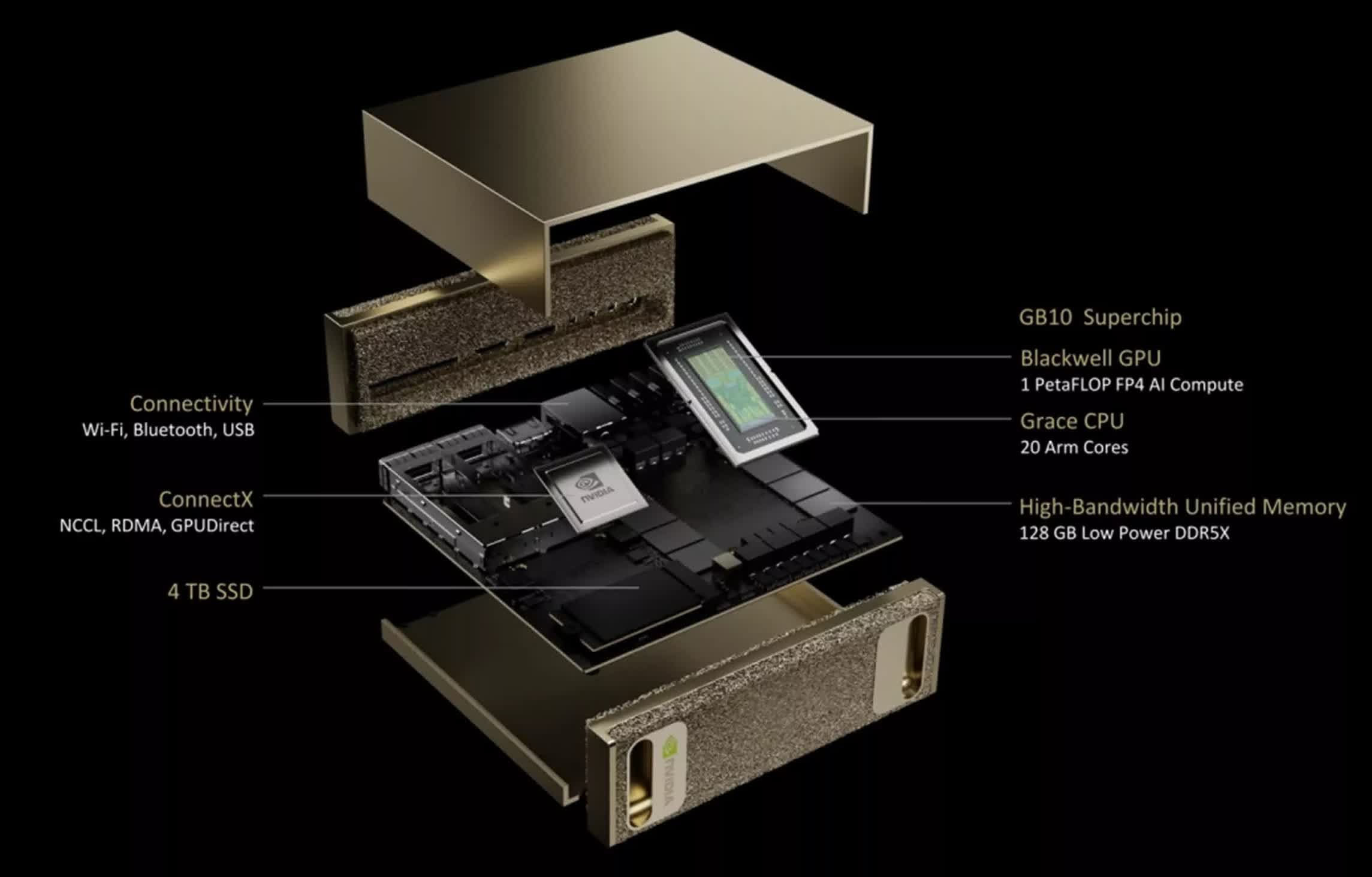Rumor mill: Nvidia has unveiled a new personal supercomputer, sparking speculation that it may be preparing to enter the consumer CPU market. With its strong credentials in graphics and AI technologies, Nvidia could bring innovation and heightened competition to a market long dominated by a few major players.

Nvidia has sparked speculation about its entry into the consumer CPU market with the unveiling of Project Digits at CES 2025. The $3,000 personal AI supercomputer features the new GB10 Grace Blackwell Superchip, a 20-core desktop CPU co-developed with MediaTek.
Project Digits delivers an astounding one petaflop of AI computing power – roughly 1,000 times more powerful than the average laptop. This performance level, once exclusive to large data centers or specialized facilities, enables users to run AI models with up to 200 billion parameters locally, eliminating the need to rely on cloud resources. Despite its power, the device is remarkably compact, comparable in size to a brick.
However, Project Digits is not a mass-market product. Running on a custom Linux system tailored for AI developers, its $3,000 price point positions it as a specialized tool for advanced AI development rather than a consumer-grade device.
The partnership with MediaTek for the GB10 Superchip has raised eyebrows, as the collaboration on the Arm-based processor signals Nvidia's serious intent to develop consumer-grade CPUs and compete in a market currently dominated by Intel, AMD, and Qualcomm.
Speculation about Nvidia entering the consumer CPU market has been circulating since October 2023, when reports suggested that Nvidia and AMD were working on Arm-based chips for a planned 2025 launch.
Nvidia CEO Jensen Huang, speaking at an investor presentation, hinted at broader ambitions for the new CPU. "You know, obviously we have plans," Huang teased, while declining to provide specific details. He added that he would "wait to tell you" what these plans entail, fueling further speculation about Nvidia's strategy.
Huang also hinted that MediaTek might bring the CPU to market independently, creating what he described as a "great win-win" situation. This collaboration has the potential to reshape the competitive CPU market significantly.
Nvidia's moves come at a time of dramatic change in the PC processor market. Qualcomm has made significant inroads with its Arm-based Snapdragon X Elite processors, which demonstrate performance and power efficiency comparable to Apple's MacBooks. These advancements have put pressure on traditional x86 systems from Intel and AMD. Additionally, Nvidia's entry coincides with the expiration of Qualcomm's exclusive agreements in the Arm-based PC sector, opening opportunities for new competitors.
2024 marked a turning point for Windows on Arm, with the platform finally realizing its potential. As Nvidia and others join the fray, 2025 could become a pivotal year in the ongoing battle between x86 and Arm architectures.
Huang also revealed Nvidia's plans to bridge the gap between Linux, the preferred operating system for AI developers, and Microsoft Windows, which dominates the consumer market. The company intends to leverage Microsoft's Windows Subsystem for Linux technology to create a product that supports both platforms seamlessly.
"We're going to make that a mainstream product," Huang said, adding that Nvidia will support it with their professional-grade software offerings.
Nvidia CEO teases plans for consumer CPU following Project Digits and GB10 CPU unveiling
